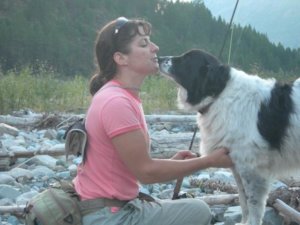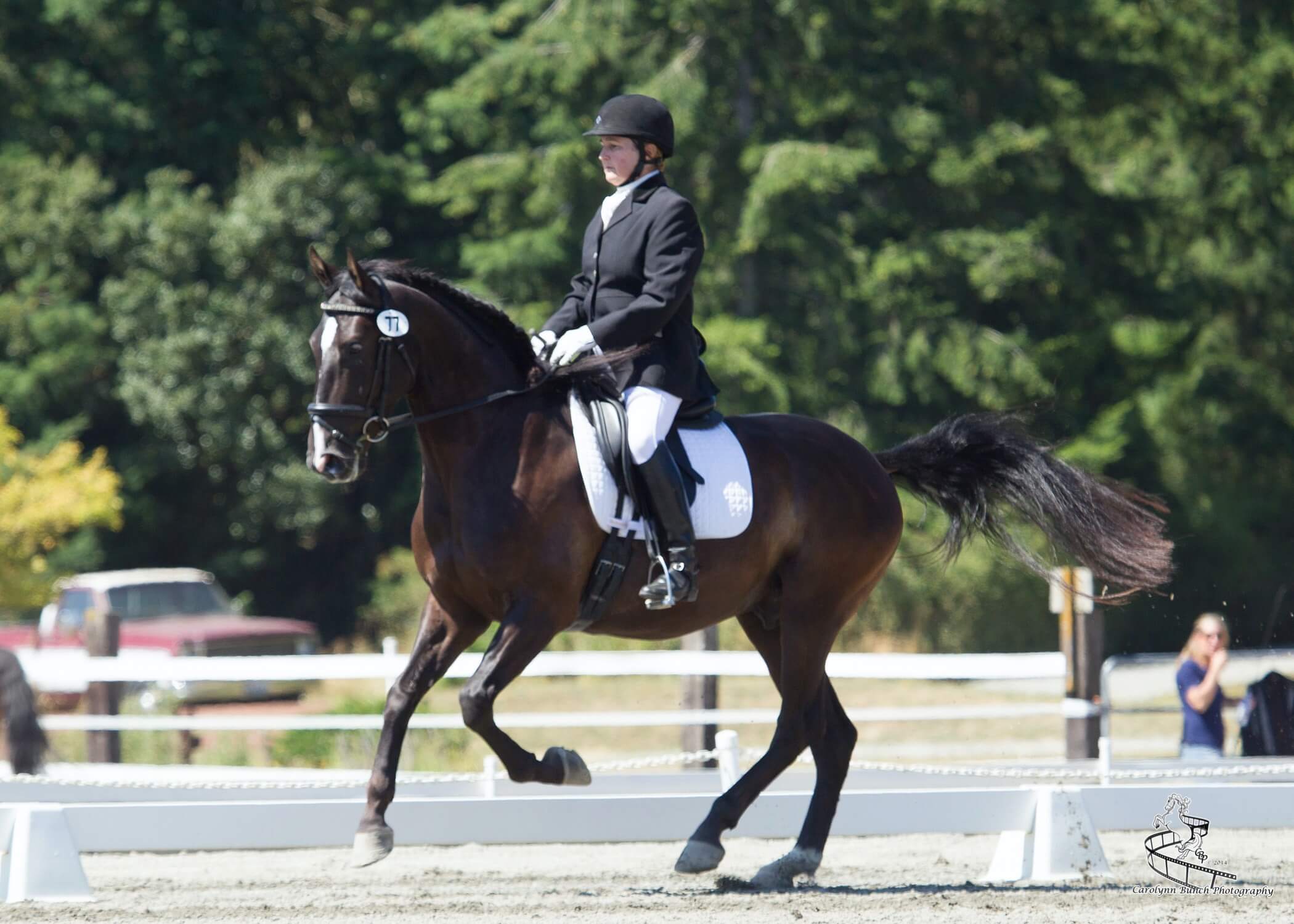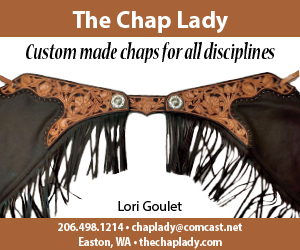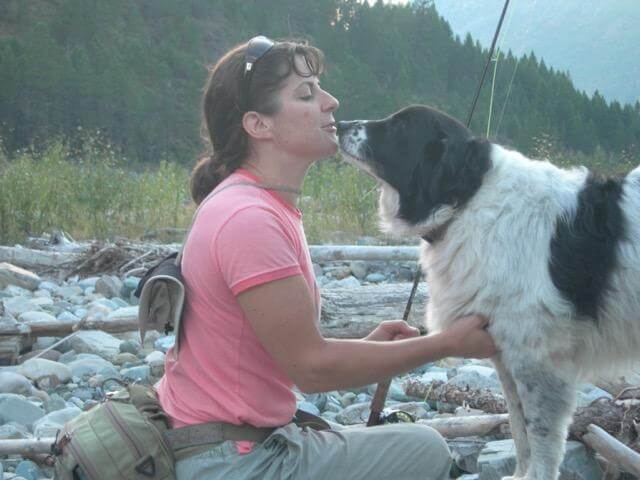Bringing Caring and Healing to Puget Sound Horses
Interview by Kim Roe
I first met Dr. Julie Eihl over 20 years ago on a late summer evening after finding my home-bred warmblood filly entangled in electric fencing. She had major lacerations to her hock and could barely walk. I was devastated.
Dr. Eihl was the on-call veterinarian, whom I’d never met before. As I watched her meticulously sew up my horse’s leg late into the night she kept me calm and positive with her optimistic outlook and obvious talent. My filly healed up perfectly––she didn’t even have a scar––and Dr. Eihl has been helping me with my horses’ health needs ever since.
Based out of Stanwood, WA, Dr. Eihl travels throughout the Puget Sound Region caring for people’s horses. She is a well-known and much-loved veterinarian to her many clients.
When did you decide to become an equine veterinarian?
As long as I can remember I’ve been preoccupied with animals and nature. As a child, when I thought about a job that could involve my interests and allow me to spend all day helping animals, it was an easy choice to pursue becoming a veterinarian. My persistence paid off and I attended WSU for both my undergrad and veterinary school.
Did you grow up with horses?

I did not grow up in a horse family (I wish! I see young girls growing up on horse farms now, and I would have loved that). I was born in Canada and our family moved between B.C. and Alberta multiple times before moving to the states for more advanced treatment for my brother’s brain tumor. We eventually moved to Redmond, WA.
Working hard in school was my outlet to pursue my dream of becoming a veterinarian. When I was 15, I started working at Redmond Animal clinic (a mixed animal practice) continuing through college, and then worked for Dr. Joe Bergevin in Woodinville as an assistant with his equine practice during summer and holiday vacations.
I would ride horses with my father periodically but was not able to have a horse of my own with our family circumstances. My golden retrievers were my constant companions in outdoor adventures when I was a kid, and I have always loved hiking and climbing.
What are the high points of your work?
It’s very gratifying to be able to facilitate the healing process in a horse that’s uncomfortable, whether it’s suturing up a laceration, removing painful enamel points with dentistry, adjusting a painful back, or treating colic. To see a horse transform from a state of suffering, to frolicking in its turnout makes me smile, and I feel like I’m contributing something positive.
What are the low points?
The worst part is predictable — euthanasia is part of the responsibility of caring for these beautiful animals. The loss of the horse and the loss to the client can be very sad, especially when you’ve known them for years, but veterinarians are there to support making those tough decisions at the appropriate time.
What do you wish horse owners understood better?
Poor behavior and poor performance often come from a health issue causing pain or discomfort. Since horses are prey animals they are genetically programmed to compensate for any weaknesses by masking them, for survival purposes.
Horses can be very stoic when it comes to chronic discomfort, for example ulcers in their cheeks from dental points, hock lameness in the middle-aged athletic horse, and gastric ulcers. These can commonly exist for months (or years) before the symptoms become obvious enough for caretakers to recognize there’s a problem.
The challenge can be trying to localize the source of discomfort, since symptoms can vary between individuals. Working together with your trainer and veterinarian can help whittle away the list of possible sources.
What do you wish horse owners would do better (or stop doing)?
The majority of horse owners are very well informed, which can really help when communicating about the history, status, and plan for diagnosis and treatment of the patient. Sometimes their references are questionable––Dr. Google can complicate the process. And sometimes the horse owner in Florida on some blog may not be the authority of how to treat a sarcoid on your horse’s face.
What do you do to decompress and let go of the stress of your job?
To decompress after work, I still want to be outdoors and will often head out onto trails for a hike or run with my dogs. In the summer there is kayaking, rafting, mountain biking, and fly fishing. When I can, I enjoy the excitement of traveling and exploring remote areas with friends and family and meeting interesting people in foreign places. Taking a break from technology helps me come back to work refreshed and ready for new challenges.

Kim Roe grew up riding on the family ranch and competed in Western rail classes, trail horse, reining, working cow, and hunter/jumper. She trained her first horse for money at 12 years old, starting a pony for a neighbor.
Kim has been a professional dressage instructor in Washington state for over 30 years, training hundreds of horses and students through the levels. In recent years Kim has become involved in Working Equitation and is a small ‘r’ Working Equitation judge with WE United.
Kim is the editor of the Northwest Horse Source Magazine, and also a writer, photographer, and poet. She owns and manages Blue Gate Farm in Deming, Washington where she continues to be passionate about helping horses and riders in many disciplines.






